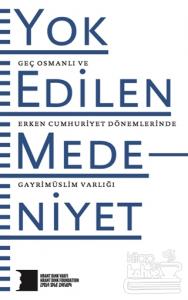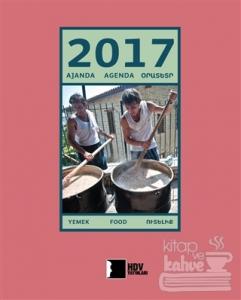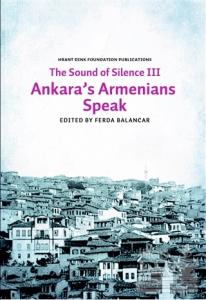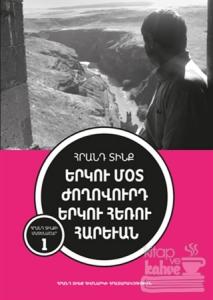
The fourth book of the “Sounds of Silence” series has been published with the support of Consulate General of Sweden. İzmit's Armenians Speak, is a product of the oral history project carried out since 2011 by Hrant Dink Foundation.
The Sounds of Silence - 4: İzmit's Armenians Speak, which compiles 9 out of the 30 interviews, is a narration of Armenian lives and differing experiences of Armenianness as it is told by people living in İstanbul, Yervan and Canada. The aim is thus to establish a dialogue between the reader and the narrator. The foreword by Ferda Balancar, who is a journalist and one of the Project coordinators, and the afterword by E. Aras Ergüneş, who is a research assistant at Philosophy Department of Kocaeli University, have contributed in a significant way to the book. There is also a collection of lyrics and tongue twisters by the Armenians who lived at İzmit and surrounding areas.
İzmit's Armenians Speak is taking us to a visit through the memoirs of the Armenian society. This book is giving clues about the “self” and “other” perception the Armenian society carries, by giving examples on the deportation and genocide memories transmitted through generations, as the other books of the series.
"First, silence allows the members of the generations that had experienced the Genocide firsthand, or through the narrations of the members of the preceding generations, the relief of shutting themselves off to the trauma of the Genocide and carrying on with their daily lives. (…) The second function that the shroud of silence serves against the Genocide experience is of a public rather than individual concern. The generations that have suffered the Genocide considered it their duty to carry the burden of their trauma to the grave so that it wouldn't rub off on the lives of the succeeding generations and so that they could create an unblemished memory space for their progeny. The way to do this is by responding with silence to the questions posed to them and passing this high-mindedness on to posterity."
- E. Aras Ergüneş, afterword
The fourth book of the “Sounds of Silence” series has been published with the support of Consulate General of Sweden. İzmit's Armenians Speak, is a product of the oral history project carried out since 2011 by Hrant Dink Foundation.
The Sounds of Silence - 4: İzmit's Armenians Speak, which compiles 9 out of the 30 interviews, is a narration of Armenian lives and differing experiences of Armenianness as it is told by people living in İstanbul, Yervan and Canada. The aim is thus to establish a dialogue between the reader and the narrator. The foreword by Ferda Balancar, who is a journalist and one of the Project coordinators, and the afterword by E. Aras Ergüneş, who is a research assistant at Philosophy Department of Kocaeli University, have contributed in a significant way to the book. There is also a collection of lyrics and tongue twisters by the Armenians who lived at İzmit and surrounding areas.
İzmit's Armenians Speak is taking us to a visit through the memoirs of the Armenian society. This book is giving clues about the “self” and “other” perception the Armenian society carries, by giving examples on the deportation and genocide memories transmitted through generations, as the other books of the series.
"First, silence allows the members of the generations that had experienced the Genocide firsthand, or through the narrations of the members of the preceding generations, the relief of shutting themselves off to the trauma of the Genocide and carrying on with their daily lives. (…) The second function that the shroud of silence serves against the Genocide experience is of a public rather than individual concern. The generations that have suffered the Genocide considered it their duty to carry the burden of their trauma to the grave so that it wouldn't rub off on the lives of the succeeding generations and so that they could create an unblemished memory space for their progeny. The way to do this is by responding with silence to the questions posed to them and passing this high-mindedness on to posterity."
- E. Aras Ergüneş, afterword














